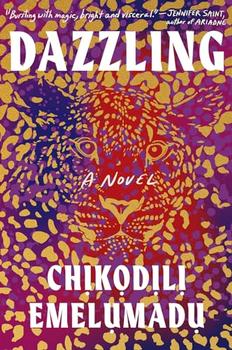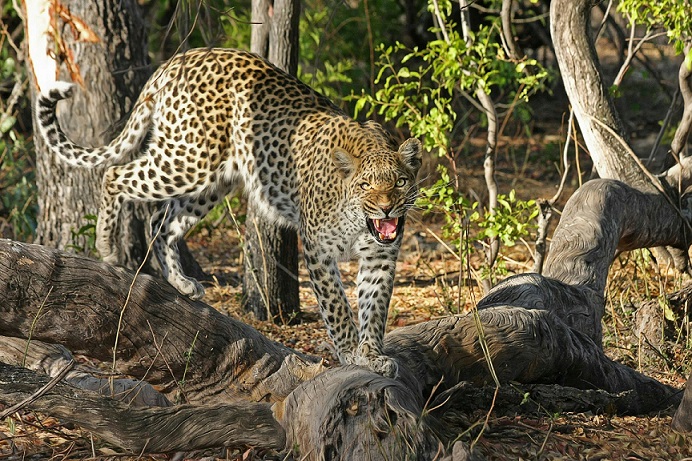Summary | Excerpt | Reviews | Beyond the Book | Read-Alikes | Genres & Themes | Author Bio

This article relates to Dazzling
 In Chikodili Emelumadu's Dazzling, Ozoemena inherits the ability to transform into a leopard from her uncle, a power that comes with certain obligations and responsibilities. Her father's side of the family belongs to a secret society that maintains this tradition, a plot detail inspired in part by real-life phenomena. In an interview with Brittle Paper, Emelumadu notes that leopards have played a significant part in Igbo culture as sacred figures (as well as in other cultures of West African regions), and that historical "leopard societies" believed that they could take on the powers of the leopard for the purpose of keeping order in their communities.
In Chikodili Emelumadu's Dazzling, Ozoemena inherits the ability to transform into a leopard from her uncle, a power that comes with certain obligations and responsibilities. Her father's side of the family belongs to a secret society that maintains this tradition, a plot detail inspired in part by real-life phenomena. In an interview with Brittle Paper, Emelumadu notes that leopards have played a significant part in Igbo culture as sacred figures (as well as in other cultures of West African regions), and that historical "leopard societies" believed that they could take on the powers of the leopard for the purpose of keeping order in their communities.
"Not quite extrajudicial but skirting on the cusp, it was their job to punish crimes through methods which in themselves were considered taboo," she explains. "Crimes against man but also against nature, such as rape, incest, adultery etc. It is worthy of note that both men and women were equally punished, which is one of the things that attracted me to the idea of them. It was balanced, not unfair." Emelumadu says these groups were also "fighting British influence" during colonial rule, referencing in particular a society in the eastern part of the country that was active throughout the colonial period — from the late 19th century through 1960. However, she declines to comment on the reality of what activities any group may have been involved in; much of the information and ideas publicly available on these societies has come from outsiders aligned with colonial influence and interests.
Historian Geoffrey I. Nwaka explains how various secret societies, and their associations with leopards, became a source of fear and confusion for colonial authorities in the 1940s, when a spate of mysterious killings initially believed to be the result of leopard attacks took place among the Annang and Ibibio people of eastern Nigeria. Between 1943 and 1948, more than 200 mutilated bodies were discovered. Leopards did pose a real threat in the region, but rumors began to circulate that a group of organized assassins, or Ekpe Owo ("leopard men"), were responsible. Secret groups in the area, including the traditional Ekpe ("leopard") society, who effectively acted as a police force outside of British authority, and the Idiong Ibok, who provided medicines to the local population in line with beliefs about humans being able to turn themselves into leopards, were considered to have possibly been involved. The investigation resulted in the eventual hanging of 77 suspects of "man-leopard murder" in what Nwaka calls "one of the most bizarre anti-crime campaigns of the colonial period." Nwaka theorizes that some of the killings may have been ordered by "Ekpe Owo," but that the vast majority were probably carried out by imitators attempting to escape punishment for their crimes by mimicking the supposed assassins' perceived methods, and that some were actually leopard attacks.
Dazzling mixes a modern, speculative interpretation of secret society history with feminism, suggesting that Ozoemena brings unique advantages to a role that was traditionally carried out by men. It is implied that through her leopard spirit, Ozoemena can sniff out injustice and attack wrongdoers, though her human self may not always be aware of the leopard's actions.
Leopard, via Pexels
Filed under Places, Cultures & Identities
![]() This article relates to Dazzling.
It first ran in the January 24, 2024
issue of BookBrowse Recommends.
This article relates to Dazzling.
It first ran in the January 24, 2024
issue of BookBrowse Recommends.
Your guide toexceptional books
BookBrowse seeks out and recommends the best in contemporary fiction and nonfiction—books that not only engage and entertain but also deepen our understanding of ourselves and the world around us.